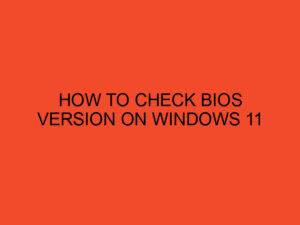As gaming has become an increasingly popular form of entertainment, many gamers have started to wonder if the size of their TV affects their gaming experience.
Some gamers believe that smaller TVs offer a better gaming experience due to faster response times and lower input lag.
However, others argue that larger TVs provide a more immersive gaming experience.
In this article, we will examine the pros and cons of using a smaller TV for gaming and whether it can improve your gaming experience.
Table of Contents
What is Input Lag?
Input lag is the time it takes for your TV to display what you’re doing on your controller.
This can be a big problem for gamers, as even a small delay can cause a noticeable impact on gameplay.
Input lag is measured in milliseconds (ms), and the lower the number, the less delay there is between your controller and the TV.
How Does Input Lag Affect Gaming?
Input lag can have a significant impact on your gaming experience.
A delay in your controller inputs can cause missed opportunities or mistimed moves, which can result in frustration and lower your overall gaming performance.
In competitive gaming, even a few milliseconds of input lag can be the difference between winning and losing.
Response Time and Gaming
Response time refers to how quickly a pixel can change from one color to another.
The lower the response time, the smoother the visuals will appear during fast-paced gameplay.
A high response time can result in motion blur, which can make it difficult to track fast-moving objects on the screen.
What Size TV is Best for Gaming?
The size of your TV is ultimately a matter of personal preference.
However, some general guidelines can help you determine the best size for your gaming setup.
The size of your TV should be proportional to the distance you sit from the screen.
For example, if you sit 6 feet away from your TV, a 55-inch TV would be an ideal size.
Pros of Using a Smaller TV for Gaming
Using a smaller TV for gaming has some advantages. One advantage is that smaller TVs generally have lower input lag and faster response times.
This can provide a more responsive and smoother gaming experience, which can be particularly important for competitive gaming.
Smaller TVs are also more affordable, making them a good choice for budget-conscious gamers.
Cons of Using a Smaller TV for Gaming
While there are some advantages to using a smaller TV for gaming, there are also some drawbacks.
One major drawback is that smaller TVs have smaller screens, which can make it more difficult to see smaller details in the game.
This can be particularly problematic for games that require precise aiming or navigation.
Additionally, smaller TVs may not be able to display the full range of colors and contrast that larger TVs can.
The Verdict: Is a Smaller TV Better for Gaming?
So, are smaller TVs better for gaming?
The answer is not straightforward, as it ultimately depends on your personal preferences and the type of games you play.
If you play fast-paced, competitive games and If you play fast-paced, competitive games and prioritize responsiveness, then a smaller TV with lower input lag and faster response times may be a better option for you.
However, if you prefer a more immersive gaming experience with larger screens and better color representation, then a larger TV may be a better choice.
Ultimately, it’s up to you to decide which factors are most important for your gaming setup.
When choosing a TV for gaming, it’s important to consider not only the size but also other factors such as resolution, refresh rate, and HDR capability.
These factors can also affect your gaming experience and should be taken into account when making a decision.
FAQs
Can input lag be reduced on larger TVs?
Yes, input lag can be reduced on larger TVs by selecting a model with a lower input lag, adjusting your TV settings, and using a gaming mode if available.
Is there a specific size of TV that is best for gaming?
The best size of TV for gaming depends on your personal preferences and the size of your gaming setup. Generally, a TV that is proportional to the distance you sit from the screen is ideal.
Does screen resolution matter for gaming on a smaller TV?
Yes, screen resolution can affect your gaming experience on a smaller TV. A higher resolution can provide better detail and clarity in the game.
Can a smaller TV provide a more immersive gaming experience?
While a smaller TV may not provide as large of a screen as a larger TV, it can still provide an immersive gaming experience if it has a high-quality display and other features such as HDR.
Is it better to use a gaming monitor or a TV for gaming?
This ultimately depends on your personal preferences and gaming setup. Gaming monitors generally have faster response times and lower input lag, but TVs can provide larger screens and better visuals.






